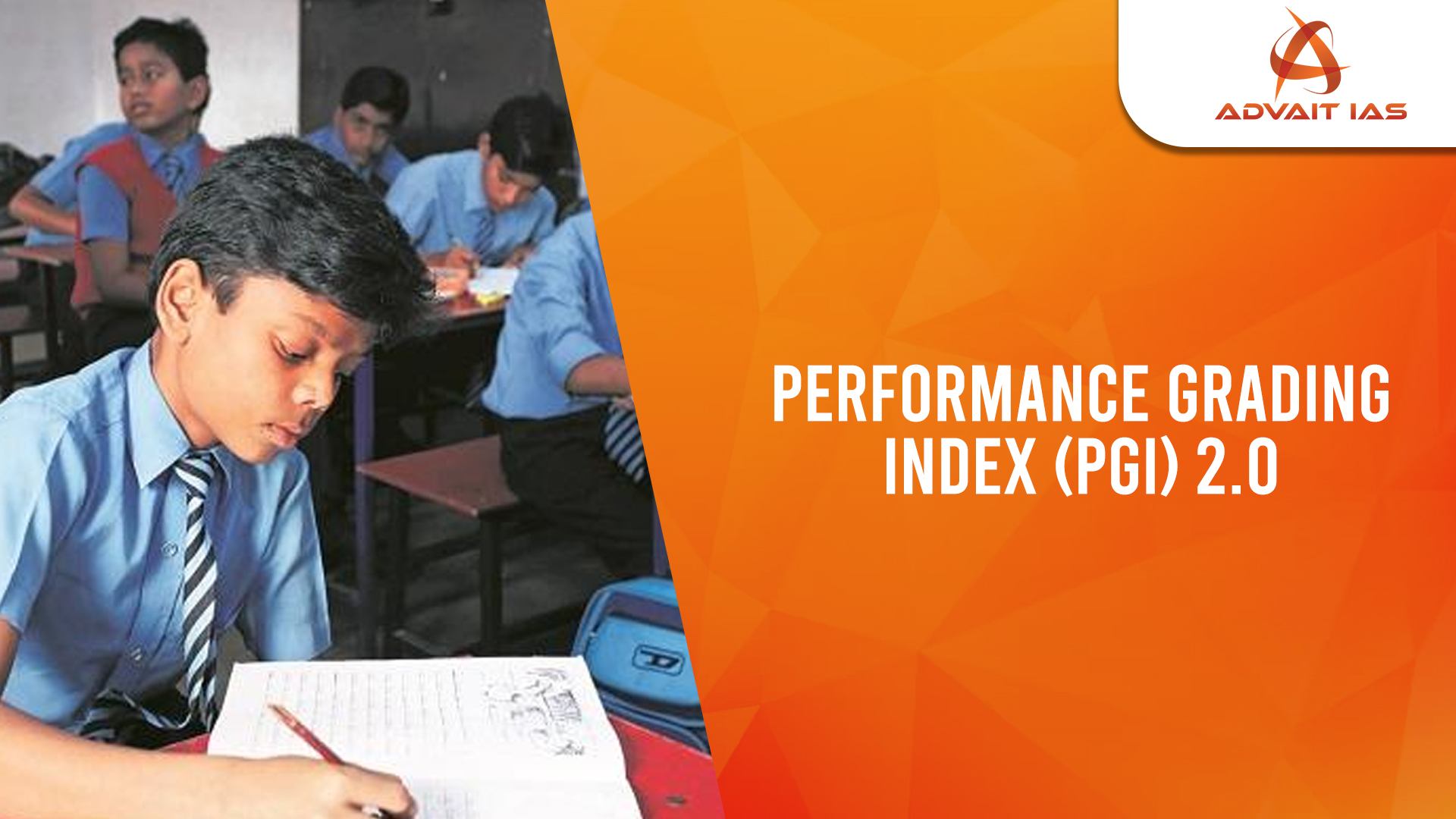The Ministry of Education released the Performance Grading Index (PGI) 2.0 report for the years 2022–23 and 2023–24. The PGI assesses the school education performance of States and Union Territories (UTs).
Performance Grading Index (PGI) 2.0:
- A data-driven assessment framework developed by the Ministry of Education.
- Evaluates school education systems in States and UTs using quantitative indicators.
- Origin:
- Launched in 2017, revamped to PGI 2.0 in 2021 to align with:
- National Education Policy (NEP) 2020
- Sustainable Development Goals (SDGs)
- Launched in 2017, revamped to PGI 2.0 in 2021 to align with:
- Grading Mechanism:
- 73 indicators across 2 categories:
- Outcomes
- Governance & Management
- Subdivided into 6 domains:
- Learning Outcomes
- Access
- Infrastructure & Facilities
- Equity
- Governance Process
- Digital Learning
- Scored out of 1,000 points, classified into 10 grades:
- From Daksh (highest) to Akanshi-3 (lowest)
- 73 indicators across 2 categories:
- Data Sources:
- UDISE+
- National Achievement Survey (NAS) 2021
- PM POSHAN (Mid-Day Meal data)
Key Findings of PGI 2.0 Report (2023–24):
- Top Performers:
- Chandigarh: 703 (Top rank for 3 years)
- Punjab: 631.1
- Delhi: 623.7
- Other High Scorers (581–640 band):
- Kerala, Gujarat, Odisha, Haryana, Goa, Maharashtra, Rajasthan
- No State/UT in Top Grade (761–1000 band)
- Bottom Performers:
- Meghalaya: 417.9
- Arunachal Pradesh: 461.4
- Mizoram, Nagaland, Bihar also ranked low
- Middle Performers (521–580 range):
- Uttar Pradesh, Tamil Nadu, Karnataka, Andhra Pradesh, West Bengal, MP, Himachal Pradesh, Uttarakhand
- Improvement Trend:
- 25 out of 36 States/UTs improved their score over previous year
- Disparities:
- A wide gap of over 300 points between top and bottom scorers indicates deep inter-state educational inequality
- Domain-wise Improvements:
- Access to Education: Bihar and Telangana showed highest gains
- Infrastructure & Facilities: Delhi, J&K, Telangana made most progress
Key Government Initiatives in School Education:
- National Education Policy (NEP), 2020 – major reform agenda aligning PGI with competency-based learning
- Samagra Shiksha Abhiyan – overarching programme for school education sector
- PM SHRI Schools – model schools with upgraded infrastructure and pedagogy
- PRAGYATA Guidelines – for digital education
- Mid-Day Meal Scheme (PM POSHAN) – improving nutrition and enrolment
- Sarva Shiksha Abhiyan (SSA) – universal elementary education
- Eklavya Model Residential Schools – for tribal students
- National Programme on Technology Enhanced Learning (NPTEL)
PGI 2.0 is a crucial tool for education reform, offering insights to bridge inter-state disparities. While some States/UTs have demonstrated notable improvements, the absence of any in the top grade and gaps in performance underline the need for focused and inclusive educational policies, particularly in NE and EAG States.






